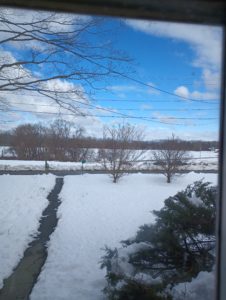For the past five days I’ve been living with my daughter, helping to take care of seven-month-old Baby Manu while her husband is away. Like most of life, there have been moments of joy, moments of challenge, moments of laughter, drudgery, frustration, profound peacefulness, you-name-it. The only thing certain about life with a baby is that there’s rarely a dull moment.
As a grandparent I feel blessed by having a lot more perspective than I had when my own children were young. In my years of early motherhood, whenever my kids screamed, I worried that not addressing on some immediate need they were expressing would scar them for life, the fog of sleep-deprivation only adding to my anxiety. Now, as I carry Baby Manu around the house and try with my old arms to satisfy his need for incessant “jumping” (i.e. lifting him up and down as he flexes his leg muscles as a launching point on my lap) I feel wiser and calmer–even when he’s screaming. And I’ve thought about how like writing, taking care of a baby is really just an exercise in plunging in and dealing with a lot of trial and error as I try to find that “true north” point of connection.
With Manu this might mean reading a book and taking stops between each page for jumping breaks, or tango dancing around the house while humming riffs from Raffi’s greatest hits or rap songs I’m making up on the spot–all on the theme of Manu: The Life. It might mean playing hand games, or making funny noises, or going through an entire array of animal sounds. Or taking a moment to put him down to play by himself, recognizing in my new found older-age wisdom that both of us could use a little time to chill. “Little” is the defining word here. All of these activities have proven successful–but generally none of them work for more than 5 to 10 minutes at a time.
The writing process can sometimes feel similar. While I welcome the blessings of the time I feel “in the groove,” other times my words–and my brain–can feel jumpy and fragmented. These are the days I go into the garden to chill, just as I put Manu under his playstation, so he can shake his rattles and babble to himself without Grandma’s interference. And other times, when I’m struggling with trying to write that “one true sentence,” I realize I need to switch up the activity, which for me usually means putting a story aside to revise a poem, or putting the poem aside to work on another poem, or another story or essay until I find something I’m connected to enough in that moment to “re-see.”
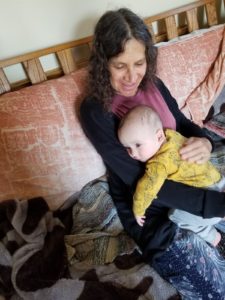
But I’m counting my blessings and taking the “birds-eye view” as both a grandparent and a writer. Eventually Manu will grow old enough to tell me what he wants–and so, I hope, will my baby poems and prose in progress.
To subscribe, sign up at ddinafriedman.substack.com

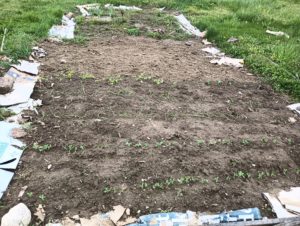
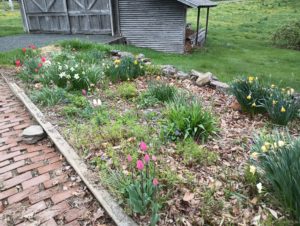

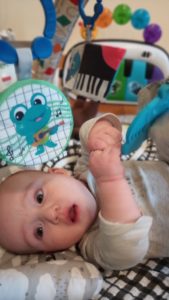 In fact,
In fact,  It’s a good reminder to think about our goals for writing and our reasons for sharing with others.
It’s a good reminder to think about our goals for writing and our reasons for sharing with others.
